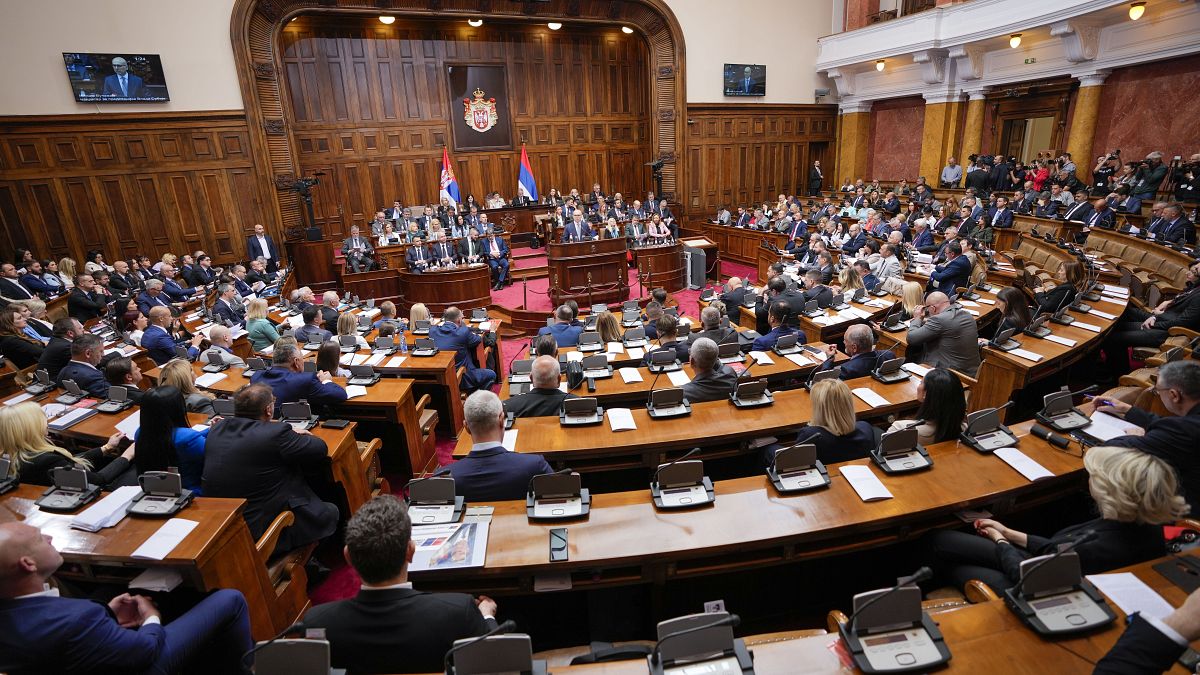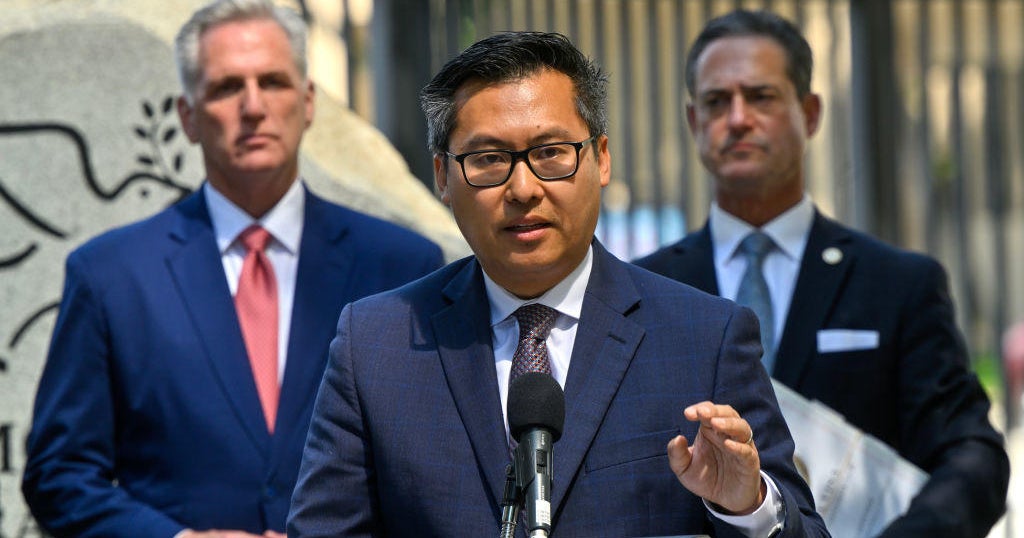Rhode Island
GoLocalProv | News | Whitcomb: Instant Trouble; Buying ‘Em Out; Charging as You Drive

Sunday, September 03, 2023
Robert Whitcomb, Columnist
As imperceptibly as grief
The summer lapsed away, —
Too imperceptible, at last,
To seem like perfidy.
A quietness distilled,
As twilight long begun,
Or Nature, spending with herself
Sequestered afternoon.
The dusk drew earlier in,
The morning foreign shone, —
A courteous, yet harrowing grace,
As guest who would be gone.
And thus, without a wing,
Or service of a keel,
Our summer made her light escape
Into the beautiful.
— Emily Dickinson (1830-1886)
GET THE LATEST BREAKING NEWS HERE — SIGN UP FOR GOLOCAL FREE DAILY EBLAST
“A memorandum is written not to inform the reader but to protect the writer.’’
— Dean Acheson (1893-1971), lawyer and diplomat. He was secretary of state in the second Truman administration.
“Rhode Island was settled {by} and is made up of people who found it unbearable to live anywhere else in New England.’’
— Woodrow Wilson (1856-1924), U.S. president in 1913-1921, in a Jan. 29, 1911 speech in New York City
(Or maybe other New Englanders found Rhode Islanders unbearable.)_
Forget the Pumpkin Spice Latte. We have the best three weeks of the summer ahead of us – if we stay away from school and the obligations of adulthood, which intensify in September.
Don Carlson, Canidate quit the race in Augusr
Block that Impulse
The “scandal,” or whatever you want to call it that forced Don Carlson to quit the race for the Democratic nomination in Rhode Island’s First Congressional District, is a reminder of how the tempting immediacy of Internet communication can snare people.
The case is somewhat murky, but revolves around texts in 2019 between Mr. Carlson, now 62, and a male graduating senior at Williams College, where Mr. Carlson, who is gay, was teaching. He allegedly sent a text to the student in which he suggested establishing a personal relationship of the sort seen on a Web site where people pay to set up dates. And in a later text, Mr. Carlson allegedly broached the idea of helping out the student with $5,000.
In any event, a classmate of the student alerted Williams officials, who, we’d guess, know more about what had happened than has been disclosed to the public. The college told Mr. Carlson that he’d no longer be allowed to teach at that elite college.
Williams spokesman Jim Reische said: “We’re relieved to hear that Don Carlson has no interest in trying to teach here again,” WPRI reported.
One wonders if Don Carlson would have been so foolish to converse with the student in an intimate way in the days before email and texting when virtually all communication was in person or by phone or snail-mail letter or fax. Maybe, but using these media are less likely than texting or emailing to encourage blurting out inappropriate remarks.
Most of us have learned the dangers of sending out stuff in anger or some other high emotion, perhaps by accident, such as sending nasty remarks to many people when there’s only one intended recipient. That can add to the landfill of bitter regrets that even the most careful people sit atop.
There’s something about writing a letter on paper that slows us down and encourages reconsideration. In my own case, I’ve learned when writing a heated letter to set it aside for a day before posting; I’ve even gone as far as the post office before turning around before dropping it in the box and taken the letter home for another rewrite.
Ah, letters on paper, using blue or black ink! Stuff to put into scrapbooks for you and your descendants and maybe even for historians. And whatever you do, write thank-you and condolence notes on paper! Recipients will appreciate them far more than emails. And fire people in person!
It has long been the practice of famous and not-so-famous people or their estates to leave for free, or sell, their letters and other personal papers to college or other libraries so that biographers, historians, and other scholars can study the documents and perhaps use them in their books. Email and texting are probably sharply reducing the flow of new archival documents. Too bad.
And most of those cell phone photos will evaporate, unlike the ones we used to stick in photo albums.
PHOTO: File
How Much to Pay Them?
As the sea level rises and coastal storms seem to be becoming more severe, more and more states and localities are realizing that in many stretches of low-lying coast, the only long-term solution is to remove houses and other structures, in what has been called “managed retreat.’’ The tricky thing is how to pay for it, especially since shoreline houses tend to be expensive.
Get ready for buyouts, relocating roads and changing zoning ordinances and districts. This could be particularly exciting in towns, such as Warren and Barrington, R.I., where so much of the land is barely above sea level.
A lot of shoreline homeowners, who include a disproportionate number of politically powerful rich people, will be, er, inconvenienced. And towns and cities will worry about the loss of property-tax revenue.
Localities, led by new state policies, should start planning where, or if, buildings and public infrastructure can be relocated, and meanwhile, promote marshland expansion, which will help mitigate flooding in stores.
This should be done with all deliberate speed. Global warming is speeding up.
Hit this link:
Recharge as You Drive
This from MIT researchers:
“Two of humanity’s most ubiquitous historical materials, cement and carbon black (which resembles very fine charcoal), may form the basis for a novel, low-cost energy storage system….The technology could facilitate the use of renewable energy sources such as solar, wind, and tidal power by allowing energy networks to remain stable despite fluctuations in renewable energy supply.
“The two materials, the researchers found, can be combined with water to make a supercapacitor — an alternative to batteries — that could provide storage of electrical energy. …MIT researchers … say that their supercapacitor could eventually be incorporated into the concrete foundation of a house, where it could store a full day’s worth of energy while adding little (or no) to the cost of the foundation and still providing the needed structural strength. The researchers also envision a concrete roadway that could provide contactless recharging for electric cars as they travel over that road.’’
Hit this link:

PHOTO: Ekaterina Tyapkina
Wouldn’t it be nice if some southern New England cities and towns, especially in suburbia, gradually set aside some lanes for electric golf carts as an alternative to cars for very local travel. Golf-cart networks have been spreading in some suburban and exurban areas, mostly of course, in regions south of here. (They’re famously the chief mode of transport in the vast master-planned, age-restricted Florida development called The Villages, a capital of the Trump cult.) The carts are fun, convenient and a modest way to improve a community’s air quality and take bites out of global warming. Admittedly, the carts would mostly be used in the April-to-November period, but, hey, winters are getting shorter….
Some would find them a pleasant alternative to bikes, especially in the rain.
PALO ALTO: A History of California, Capitalism and the World
Not Quite That Simple
PALO ALTO: A History of California, Capitalism and the World, by Malcolm Harris, is a highly entertaining quasi-Marxist screed that takes us to today’s chieftains of Greater Silicon Valley (such as the creepy Trumpster Peter Thiel and the self-infatuated Venture Capital QAnon around him). We go there via the theft of Native American and Mexican land; the arrival and exit of gold miners; the machinations of rapacious and monopolistic railroads; ingenious and self-confident political corruption; the early days of Stanford University (flavored with murder and eugenics), with its spectacular Palo Alto campus and in some ways the region’s psychic center, and the beginnings of what led to “high tech’’.
It’s diverting and often funny – I rather like his jovial tone as he describes assorted outrages, real and debatable – but the theme is so glued to old-fashioned socialist theology that it often just sounds silly. He calls capitalism, in its California incarnation and elsewhere, “a system of domination and production.’’ Well, yes, to some extent. But he also makes such over-the-top assertions as “the human-capital production system was hostile to everyone except certain white men, as eugenicists designed it’’. History is a tad more complicated.
(This reminds me of the old joke that “under capitalism man oppresses man. But under socialism, it’s the other way around.’’ We’re a pretty oppressive species.)
Capitalism, to paraphrase Churchill on democracy, is the worst economic system, except for all others that have been tried. Fueled by the profit motive, it’s a fount of invention and innovation, and thus wealth, very unevenly distributed, but eventually raising the standard of living for most people. Capitalism has the great merit of responding to a changing world with more creativity than can government central planning.
But capitalism must be regulated to, among other things, protect public health and safety, penalize fraud, break up price-fixing monopolies and protect workers’ rights. Some would call a regulated capitalism a “mixed economy.’’ Whatever.
To Mr. Harris, in capitalism you have only two main groups – heartless plutocrats and their victims – rather than the very, very complicated society and economy that go with the system.

Robert Whitcomb is a veteran editor and writer. Among his jobs, he has served as the finance editor of the International Herald Tribune, in Paris; as a vice president and the editorial-page editor of The Providence Journal; as an editor and writer in New York for The Wall Street Journal, and as a writer for the Boston Herald Traveler (RIP). He has written newspaper and magazine essays and news stories for many years on a very wide range of topics for numerous publications, has edited several books and movie scripts and is the co-author of among other things, Cape Wind.
Related Articles
Enjoy this post? Share it with others.

Rhode Island
Rhode Island Lottery hosts 'Spin and Win' event to commemorate 50th anniversary | ABC6

CRANSTON, R.I. (WLNE) — The Rhode Island Lottery hosted a “Spin and Win” event on May 30 to commemorate the 50th anniversary of its inaugural drawing on May 30, 1974.
James Burke of North Kingstown won two Boston baseball tickets at the event.
Burke recently won a $177,030 Wild Money jackpot as part of the anniversary celebrations.
Rhode Island
This Helm E-Type Will Soon be Road Tripping Rhode Island – Hagerty Media

A Series 1 Jaguar E-Type restored and enhanced by Helm in the United Kingdom, is on its way to the U.S. East Coast.
It’s the third car in Helm’s limited series of 20 restomods, with each a unique specification as determined by its buyer. In this case the American enthusiast opted for metallic emerald green paintwork applied to the mostly hand-beaten aluminum body using an electrophoretic technique for unparalleled uniformity and corrosion protection.

The rich Ochre interior has been crafted by Bill Amberg studio in aniline European calf hide and suede. None of the original plastics are to be seen, with even toggle switches artfully covered in leather. A matching set of luggage is provided to fill the space behind the seats.
Helm’s modifications extend to a blueprinted 300-hp 4.2-liter straight-six engine with a calibrated ECU, fuel injection and hand-polished stainless steel exhaust system. Cooling comes from a new high-efficiency radiator with uprated pumps, pipework and header tank. The gearbox is a Tremec five-speed manual and there’s an organic clutch kit fitted as well. Braking is via aircraft-grade aluminum calipers and vented discs all round, while the suspension is an adjustable Ohlins system with poly bushes front and rear. Speed sensitive electric power steering is also included.

A host of modern-day creature comforts have been added, from soft-close doors and a heated windscreen to a hidden seven-speaker audio system with Apple car play and a reversing camera. This is an E-Type designed to be daily-driven.
“The E-type is rightfully considered an icon in automotive design,” says Helm founder Chedeen Battick, ‘but I have always felt that it deserves a performance to match. The Rhode Island Commission is the continuation of our mission to take advantage of modern best practice in terms of build and engineering in order to create the ultimate E-type, fit for the expectations of today’s driver, without compromise.”

***
Check out the Hagerty Media homepage so you don’t miss a single story, or better yet, bookmark it. To get our best stories delivered right to your inbox, subscribe to our newsletters.
Rhode Island
U.S. Supreme Court chief declines to discuss Alito flag uproar, ethics with Senate Dems • Rhode Island Current

U.S. Supreme Court Chief Justice John G. Roberts Jr. told leading Democrats on the U.S. Senate Judiciary Committee Thursday he will not meet with them to discuss the court’s code of ethics, following revelations of displays of politically oriented flags at the homes of Justice Samuel Alito.
Individual justices will continue to decide their own recusals, Roberts wrote to Senate Judiciary Chair Dick Durbin, a Democrat of Illinois, and Subcommittee on the Federal Courts Chair Sheldon Whitehouse, a Rhode Island Democrat, in a letter obtained by States Newsroom.
Durbin and Whitehouse had asked Roberts a week earlier to force Alito to recuse himself from upcoming decisions related to the 2020 election and to meet to discuss proposals to strengthen Supreme Court ethics rules.
“I must respectfully decline your request for a meeting,” Roberts wrote in the two-paragraph letter dated Thursday. “Separation of powers concerns and the importance of preserving judicial independence counsel against such appearances.”
Justices rarely meet with legislators, particularly those who have expressed an interest in matters before the court, Roberts wrote.
Meeting with members of only one party would be especially problematic, he said.
In a statement, a spokesperson for Durbin rejected Roberts’ reasoning, saying Durbin only sought to address the lack of public confidence in the court.
“The Chief Justice is wrong to say that simply meeting with members of Congress to discuss the Supreme Court’s ethics crisis threatens the separation of powers or judicial independence,” the spokesperson wrote.
“Due to the Chief Justice’s intransigence, Chair Durbin will continue his efforts to pass legislation establishing an enforceable code of conduct for all nine Supreme Court justices — regardless of which President appointed them.”
“It is frustrating that the Chief Justice of the United States refused to address the aspect of our letter addressed to him as chair of the Judicial Conference,” said Whitehouse in a statement. “Close reading of text is an attribute of a good judge. Simply ignoring text is often a sign that there’s not a good answer.”
Whitehouse said the Judicial Conference is a body created and funded by Congress, enforcing laws passed by Congress.
“It is an administrative body, not an adjudicative body,” Whitehouse added. “Even if there were a proper separation of powers argument here, which I don’t believe, it would not extend to the Conference. All this means is that the work must continue until we have a Supreme Court that applies to itself basic tenets of rule of law: honest fact-finding and neutral decision-making. That really should not be hard.”
‘Immediately take appropriate steps’
Durbin and Whitehouse wrote to Roberts on May 23, asking him “to immediately take appropriate steps to ensure that Justice Alito will recuse himself in any cases related to the 2020 presidential election and January 6th attack on the Capitol.”
Flags at two Alito homes appeared to promote former President Donald Trump’s baseless claims that his loss in the 2020 election was the result of a rigged election. That claim spurred the Jan. 6, 2021, attack.
A May 22 New York Times report documented that a flag at Alito’s Virginia home flew upside down in the weeks following the 2020 election. Alito told the Times that his wife displayed that flag in reaction to a neighborhood dispute.
A New Jersey vacation home belonging to the Alitos was photographed in the summer of 2023 flying an “Appeal to Heaven” flag, which bears that slogan above a simple pine tree design. The second flag was also first reported in the New York Times.
Both flags were carried by rioters during the Capitol attack, raising questions for Durbin and Whitehouse about Alito’s ability to be objective in cases concerning former President Donald Trump’s role in the attack.
The court heard oral arguments last month in a case about whether presidential immunity shielded Trump from prosecution on federal charges he sought to overturn the legitimate election results.
The Democratic senators specified that the case was one from which Alito should recuse himself.
Roberts’ letter said Alito had written to the committee himself on that issue. That letter was not immediately available Thursday.
GET THE MORNING HEADLINES DELIVERED TO YOUR INBOX
-

 News1 week ago
News1 week agoThe states where abortion is on the ballot in November : Consider This from NPR
-

 News1 week ago
News1 week agoRead Prosecutors’ Filing on Mar-a-Lago Evidence in Trump Documents Case
-

 World1 week ago
World1 week agoSerbian parliamentary minnow pushes for 'Russian law' equivalent
-

 Politics1 week ago
Politics1 week agoMichael Cohen swore he had nothing derogatory on Trump, his ex-lawyer says – another lie – as testimony ends
-

 News1 week ago
News1 week agoBuy-now, pay-later returns and disputes are about to get federal oversight
-

 News1 week ago
News1 week agoVince Fong wins special election to finish term of former House Speaker Kevin McCarthy
-

 News1 week ago
News1 week agoVideo: Midwest Storms Destroy Homes
-

 World1 week ago
World1 week ago€440k frozen in Italy over suspect scam by fake farmers


















